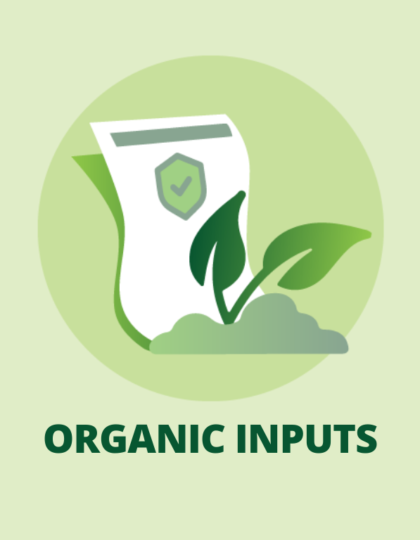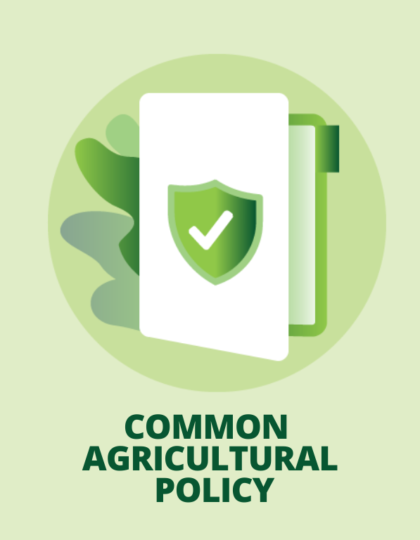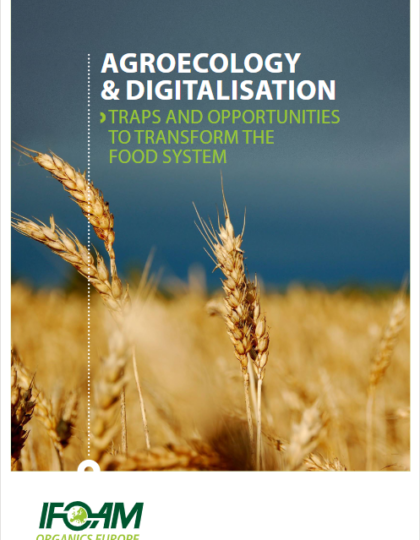In this section you can find all our resources organised by type, topic and sorted chronologically. Click on the kind of resources you’re searching for and browse our latest publications!
Library
Official letters

05/03/2024
Water
Nature-based water resilience cannot wait
Open letter: Nature-based water resilience cannot wait Brussels, 5 March 2024 Dear European Commission President Ursula von der Leyen, We…

The EU must make pesticide reduction a reality
We, the undersigned 125 organisations, condemn the failure of the European Parliament, Council and Commission to deliver on a crucial…

Don't delete article 43 - CAP funding for effective pesticide reductions
Public funds need to be used to support farmers in taking the measures needed to effectively reduce pesticides, protect health…

10/11/2022
Plant health care
Joint letter to call on the Parliament and the Council to support the Commission’s proposal on the SUR
29 NGOs, the European organic movement, beekeepers and IBMA (biocontrol manufacturers) call on the Parliament and the Council to support…

03/11/2022
Plant health care
Joint statement from 16 organisations across Europe on the SAIO Regulation regarding PPPs' records to be kept by professional users
We co-signed with 15 NGOs this joint statement regarding the SAIO (Statistics on Agricultural Inputs and Outputs) Regulation (approved by the European Parliament…

28/02/2022
Plant health care
Joint statement on the revision of the Sustainable Use of Pesticides Directive
February 28, 2022 – We, the undersigned organisations, are deeply concerned about the lack of ambition in the proposal on…
Reports and studies

02/12/2024
Plant health care
Introducing the Pesticide Use and Risk Indicator (PURI): A new approach to measuring pesticide risks
The current Harmonized Risk Indicator 1 (HRI 1) has significant weaknesses that lead to misleading trends in pesticide use reduction.…

23/02/2023
Plant health care
Toxicological comparison of pesticide active substances approved for conventional vs. organic agriculture in Europe
There is much debate about whether the (mostly synthetic) pesticide active substances (AS) in conventional agriculture have different non-target effects…

12/12/2022
Plant health care
Closing nutrient cycles: Reshaping EU agri-food system for greater autonomy and sustainability - Event report
As announced in the EU Biodiversity and Farm to Fork strategies and in the Zero Pollution Action Plan, the European…

Report on contaminants present in food - Evaluation of survey results
This report contains the results of a survey on contaminants on food and how to deal with them. The survey…
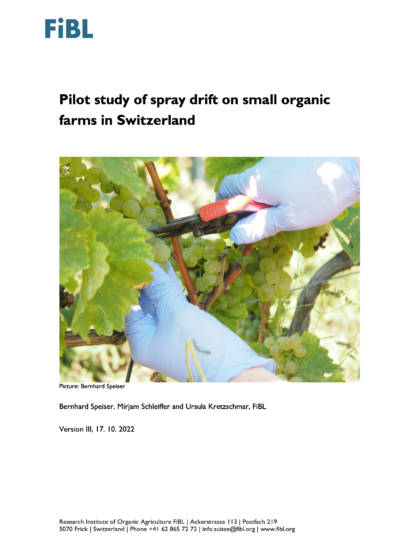
Pilot study of spray drift on small organic farms in Switzerland
Spray drift is a major problem for organic farmers, particularly in small fields (Speiser and Kretzschmar, 2021). To support the…

Cases of pesticide residues – Illustrating the decisions taken by control bodies and control authorities in Europe
The handling of organic products contaminated with pesticide residues is highly diverse within Europe. Also, differences between different actors within…
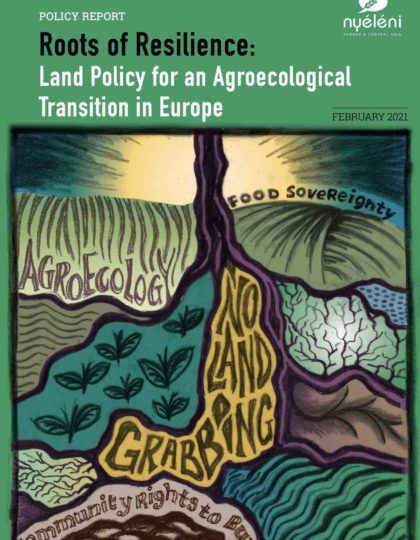
22/02/2021
Agroecology
Roots of Resilience: Land Policy for an Agroecological transition in Europe
Read the policy report report “Roots of resilience: Land policy for an agroecological transition in Europe” in EnglishRead the executive…
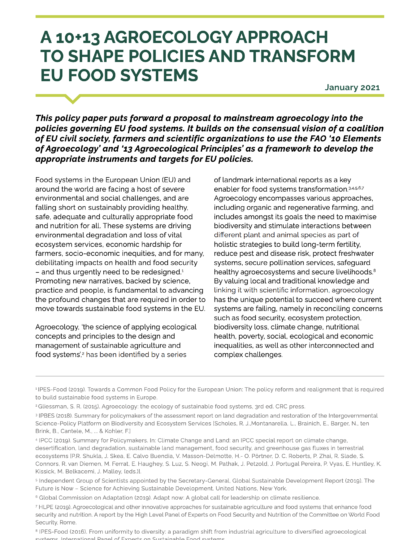
27/01/2021
Agroecology
A 10+13 agroecology approach to shape policies and transform eu food systems
This policy paper puts forward a proposal to mainstream agroecology into the policies governing EU food systems. It builds on…

Organic Agriculture and the Sustainable Development Goals – Part of the Solution
Institute: EOSTA and Nature & More – Author: Simon de Schaetzen
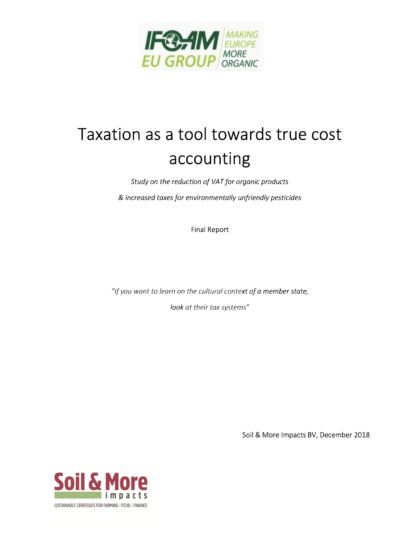
21/12/2018
Fairness & transparency
Taxation as a tool towards true cost accounting
STUDY ON THE REDUCTION OF VAT FOR ORGANIC PRODUCTS & INCREASED TAXES FOR ENVIRONMENTALLY UNFRIENDLY PESTICIDES
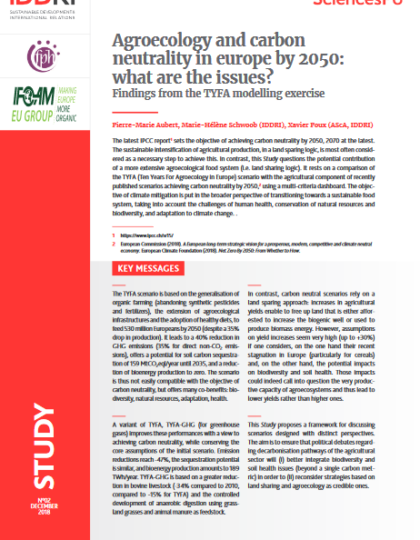
Agroecology and carbon neutrality in Europe by 2050: what are the issues?
Institute: Institute for Sustainable Development and International Relations (IDDRI) – Authors: Pierre-Marie Aubert, Marie-Hélène Schwoob, Xavier Poux

18/01/2014
R&I policy
The European Innovation Partnership: Opportunities for innovation in organic farming and agroecology
Download this dossier in [EN] [FR] [PL]



